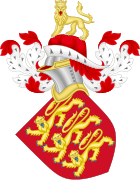
The Statute of Westminster of 1275, also known as the Statute of Westminster I, codified the existing law in England, into 51 chapters. Only chapter 5 is still in force in the United Kingdom, whilst part of Chapter 1 remains in force in New Zealand. It was repealed in Ireland in 1983.

The Egyptians Act 1530 was an Act passed by the Parliament of England in 1531 to expel the "outlandish people calling themselves Egyptians", meaning Roma. It was repealed by the Repeal of Obsolete Statutes Act 1856.
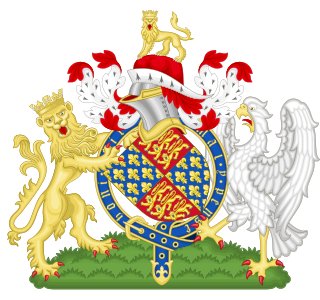
The Act 7 Ric. 2. c. 5 (1383), sometimes called the Beggars Act 1383, the Vagrancy Act, or the Vagabonds Act 1383, was an Act of the Parliament of England made at Westminster in 1383, after the Peasants' Revolt (1381).
Firearms Act is a stock short title used for legislation in Canada, Hong Kong, Jamaica, and the United Kingdom. This list includes not only Firearms Acts as such, but legislation of different names governing firearms and also other weapons.
Nightwalker statutes were English statutes, before modern policing, allowing or requiring night watchmen to arrest those found on the streets after sunset and hold them until morning. Foremost among them was the Statute of Winchester of 1285 and re-adopted or amended several times until its repeal in 1827 that stated "if any stranger do pass by them, he shall be arrested until morning." Such power was interpreted to extend not only to the watchmen themselves, but also to assistants, and allowed the arrest and detention of all persons.

The Treason Act 1554 was an Act of the Parliament of England. It is not to be confused with two other Acts about treason passed in the same year, 1 & 2 Ph & M c 9 and 11.

The Treason Act 1547 was an Act of the Parliament of England. It is mainly notable for being the first instance of the rule that two witnesses are needed to prove a charge of treason, a rule which still exists today in the United States Constitution.
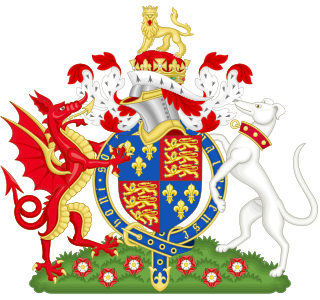
The Benefit of Clergy Act 1496, formally referred to as the Act 12 Hen. 7 c. 7, was an Act of the Parliament of England, passed during the reign of Henry VII of England. Its long title was "An Act to make some Offences Petty Treason." It abolished benefit of clergy for petty treason.

The Benefit of Clergy Act 1402 was an Act passed during the reign of Henry IV of England by the Parliament of England. It abolished compurgation for high treason and theft.
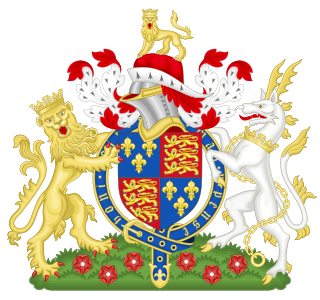
The Safe Conducts Act 1414 was an Act of the Parliament of England. It made it high treason to break a truce or promise of safe conduct by killing, robbing or "spoiling" the victim. Unusually, the "voluntary receipt" or "concealing" of people who had violated this Act was also stated to be treason.

The Suppression of Religious Houses Act 1536, also referred to as the Act for the Dissolution of the Lesser Monasteries (1536) and as the Dissolution of Lesser Monasteries Act, was an Act of the Parliament of England enacted by the English Reformation Parliament in February 1535/36. It was the beginning of the legal process by which King Henry VIII set about the Dissolution of the Monasteries.

The Statute of Northampton is legislation passed by the Parliament of England which met in Northampton in 1328. The parliament also ratified the Treaty of Edinburgh–Northampton which ended the First War of Scottish Independence.

The Statute of Winchester of 1285, also known as the Statute of Winton, was a statute enacted by King Edward I of England that reformed the system of Watch and Ward (watchmen) of the Assize of Arms of 1252, and revived the jurisdiction of the local courts. It received royal assent on 8 October 1285.
The Statutes of the Realm is an authoritative collection of Acts of the Parliament of England from the earliest times to the Union of the Parliaments in 1707, and Acts of the Parliament of Great Britain passed up to the death of Queen Anne in 1714. It was published between 1810 and 1825 by the Record Commission as a series of 9 volumes, with volume IV split into two separately bound parts, together with volumes containing an Alphabetical Index and a Chronological Index.

The Poisoning Act 1530 was an Act of the Parliament of England. Its long title was "An Act for Poisoning." It made it high treason to murder someone with poison, and instead of the usual punishment for treason it imposed death by boiling. It was repealed by the Treason Act 1547.

The Statute of Westminster of 1285, also known as the Statute of Westminster II or the Statute of Westminster the Second, like the Statute of Westminster 1275, is a code in itself, and contains the famous clause De donis conditionalibus, one of the fundamental institutes of the medieval land law of England.
Sir Thomas Edlyne Tomlins was an English legal writer.
Sir Walter Stonor was the son of Thomas Stoner of North Stoke, Oxfordshire and Sybilla, the daughter of Sir David Brecknock. He was a Knight of the Body and appointed Lieutenant of the Tower of London on 29 September 1546. He had at least three probable brothers, John, Edmund and Robert. He was knighted by Thomas Howard, then Earl of Surrey, after the Battle of Flodden in 1513. He died in 1551 with no male heir.
The Record Commissions were a series of six Royal Commissions of Great Britain and the United Kingdom which sat between 1800 and 1837 to inquire into the custody and public accessibility of the state archives. The Commissioners' work paved the way for the establishment of the Public Record Office in 1838. The Commissioners were also responsible for publishing various historical records, including the Statutes of the Realm to 1714 and the Acts of Parliament of Scotland to 1707, as well as a number of important medieval records.
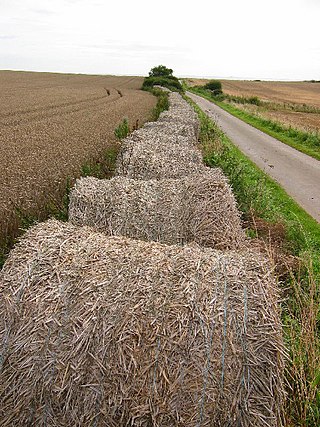
Sprat v Agar is an early and landmark precedent and decision in third-party contract law, that is defeating privity of contract. It was one of a number of early cases in the development of how the writ of assumpsit came to allow third parties with no direct involvement to a contract could achieve standing to enforce benefits from a contract.
